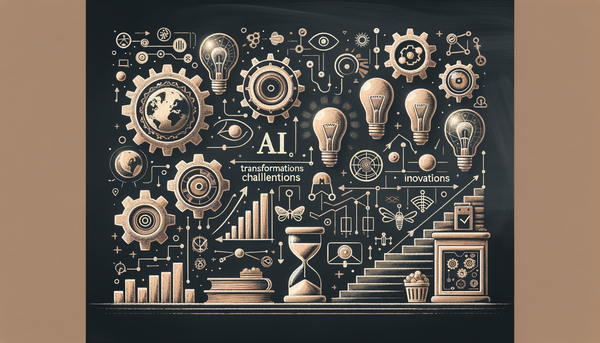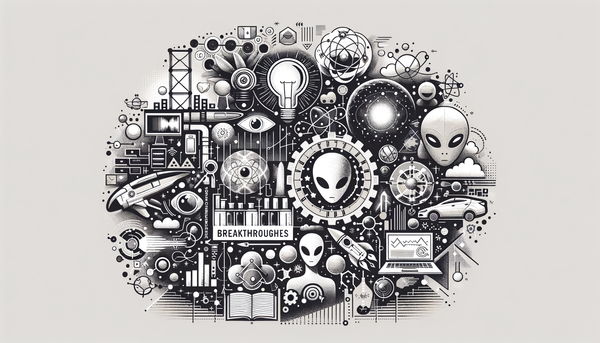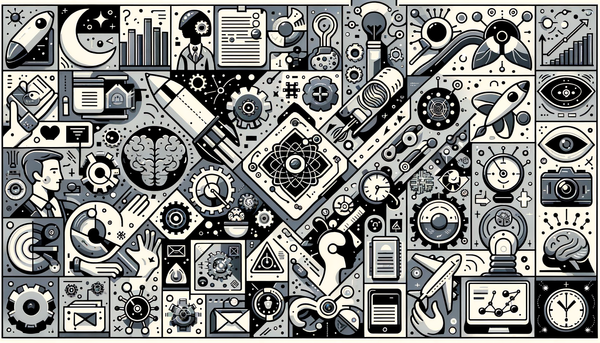Maintaining the Human Experience in an AI World
In today's rapidly evolving landscape of artificial intelligence, we face a dichotomy between innovation and ethical considerations. From maintaining human experiences in an AI-driven world to navigating the potential endgame scenarios of AI, this exploration dives deep into the intersection of AI with daily life, industry challenges, and professional landscapes. Join me as we unpack this fascinating intersection through discussions on human-machine synergy, survival strategies amidst AI advancements, generative AI’s cautionary tales in media, and the dual-edged sword of automation for white-collar workers.
The Human Experience in an AI World
Navigating the evolving realm of artificial intelligence often feels like walking a tightrope between technological advancement and preserving our uniquely human experiences. The question isn't just about how AI can augment our lives, but also how it could potentially eclipse the elements of human interaction that define societies.
As modern AI technologies continue to permeate various facets of life, the ability to maintain these human experiences has become increasingly vital. To blend AI innovation with human sensitivity, thoughtful design and ethical considerations must guide the development of AI tools. For instance, as discussed in this AI.Biz article, integrating empathetic AI within customer service sectors shows how these technologies can complement rather than replace human touch.
Surviving the AI Endgame
In a recent thought-provoking conversation, Dario Amodei, CEO of Anthropic, highlighted the significant question of our era: How does humanity survive and thrive with AI? The discourse around AI survival isn't mere science fiction - it's an increasingly urgent dialogue among tech pioneers who foresee an AI endgame where its capabilities might outstrip human oversight.
"When we imagine AI's future, our greatest strength lies in cautious optimism tempered by rigorous oversight and collaboration across sectors."
Amodei suggests proactive adaptability, continuous education, and the implementation of strict governance structures to mitigate potential risks. His insights resonate significantly with an AI.Biz interview, where the emphasis was on transparency and multi-stakeholder engagements in AI development, ensuring a balanced and secure trajectory for AI technologies.
The Generative AI Experiment: Media's Cautionary Tale
An experiment in generative AI by an Italian newspaper serves as a cautionary tale about this burgeoning technology's implications in media and content creation. By leveraging AI to generate news stories, the endeavor quickly uncovered the challenges of maintaining accuracy, bias neutrality, and editorial integrity.
The technology's potential is immense—however, the gap between human understanding and machine translation of nuanced context remains significant. As seen in this cautionary tale, which was further explored in related coverage by AI.Biz, balancing speed with accuracy in news reporting requires human oversight to ensure responsible dissemination of information.
These incidents urge media outlets to establish hybridized models where AI amplifies human monitoring, rather than operating in isolation, thereby enhancing their creative capacities without sacrificing ethical and factual standards.
Automation: Revolutionizing or Threatening White-Collar Professionals?
As we delve into the implications of AI and automation within white-collar professions, a dual narrative emerges. On one hand, the prospect of AI streamlining operations and enhancing productivity is enticing. On the other, there's a palpable unease about job displacement and the erosion of traditionally human roles.
White-collar professionals are not entirely immune to automation's transformative wave. While roles are increasingly augmented with intelligent systems, as illustrated in an AI.Biz analysis, the focus is shifting towards skill reinvention and digital adaptability.
The movement towards automation necessitates a fundamental restructuring in how businesses approach workforce development, emphasizing upskilling and cross-disciplinary competencies. This evolution is crucial in ensuring that the workforce remains aligned with the technological landscape it inhabits.
Further Readings
For those interested in exploring the balance between AI's advancements and human oversight, [further studies](https://arxiv.org/) delve into strategic frameworks for safe AI deployment. Additionally, initiatives like the [AI Ethics Lab](https://aiethicslab.com/) provide resources and insights into fostering ethical AI practices.




